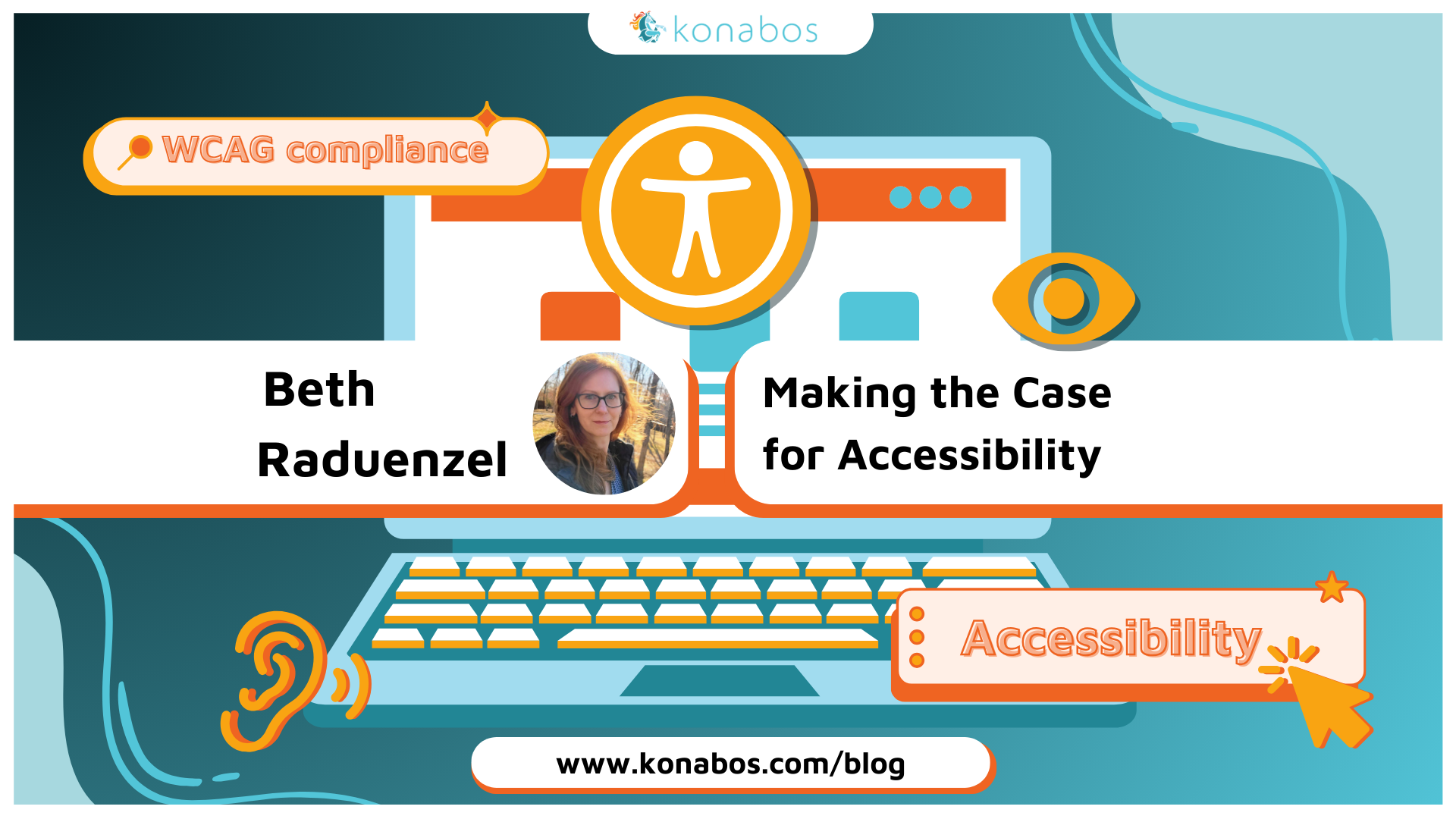The Case for Web Accessibility
Beth Raduenzel -
9 Oct 2024
For years, Bob Kramer, owner of Kramer Knives, used his website to auction his intricate, handcrafted knives and educate consumers about his craft. However, this changed when a visually impaired New Yorker sued Kramer Knives, claiming the site was inaccessible.
In the lawsuit, the plaintiff said she was unable to purchase a knife case. “It came out of the blue,” said Kramer, who spends a month or more creating a single knife, “She never called or emailed”.
The number of “drive-by lawsuits” is on the rise. In fact, New York-based firm Mizrahi Kroub filed over 1,100 cases in 2022 alone, representing a quarter of all ADA lawsuits that year. Their focus on small to mid-sized businesses has resulted in significant legal fees and settlements.
Don’t fall victim to firms like Mizrahi Kroub. Bring your website into WCAG compliance now, rather than waiting until after a lawsuit—when your business is under the stress of tight deadlines and pending fines.
Consider the brakes of a car: cars need functioning brakes to operate safely. When brake pads begin to wear out, they emit a loud squeaking sound to alert the driver. If this is ignored, the brakes will eventually grind. Left unfixed, the car becomes unsafe to drive and will require even more costly repairs beyond just replacing the brake pads.
The ADA, signed into law in 1990, has embraced digital communications from the start. The proverbial “accessibility brakes” have been squeaking and grinding for over 30 years! The time to get your website WCAG-compliant is now. Address the problem before it becomes an even bigger issue.
The surge in ADA lawsuits has put small businesses under increasing pressure. Recent data shows that 96.3% of websites fail to meet ADA standards, making them easy targets. Mizrahi Kroub’s approach has drawn criticism for prioritizing financial gain over genuine accessibility improvements. The lack of clear ADA standards has fueled the rise of so-called “cut-and-paste” lawsuits.
A notable example is Bob Kramer of Kramer Knives in Bellingham, WA, who spent nearly $40,000 on legal expenses due to a lawsuit alleging that his website was inaccessible. This highlights the financial toll such lawsuits can impose on small businesses.
As ADA lawsuits grow, calls for reform are mounting. Experts advocate for clearer website accessibility guidelines and giving businesses the opportunity to fix issues before litigation begins. Balancing accessibility needs with protections for small businesses is essential for fostering a fair digital environment.
To avoid legal and financial risks, small businesses must proactively ensure their websites comply with ADA standards.
In August 2024:
- 317 ADA-related lawsuits filed
- 79 defendants with a prior ADA digital lawsuit
- 76 defendants sued while using a third-party accessibility tool or widget
Additionally, the Department of Justice enforces accessibility mandates with strict penalties for violations across several industries, including:
- Retail: Stores and other sales establishments
- Banking: Financial organizations facing lawsuits over website accessibility
- Hospitality: Hotels, inns, motels, and restaurants
- Healthcare: Hospitals and medical offices
- Transportation: Automotive, aviation, and transportation companies
- Education: Colleges and higher education institutions
- Entertainment: Auditoriums, theaters, and sports arenas
- NGOs and NPOs: Non-governmental and not-for-profit organizations
To put this into perspective, an estimated 25% of the adult population in the US has a disability. The average website has about 20,000 unique visitors each month. Statistically, that means 5,000 visitors to your site may have a disability. Even if only a fifth of them do, that’s still 1,000 people with disabilities visiting your website monthly.
With initial web accessibility violations carrying fines of up to $75,000—and subsequent violations reaching up to $150,000—your business could face up to $1,425,000 in fines per incident if just 1% of those 1,000 disabled visitors files an ADA complaint with the Department of Justice.
Protect your business and ensure accessibility for all—contact us today to make your website ADA-compliant!

Beth Raduenzel
Working for large Fortune 100 and 500 companies and small tech startups has given Beth a range of rarely attained experience. Beth has enjoyed improving user experiences across B2B, B2C, and SaaS Enterprise apps, whether as part of a large design team or wearing many hats as the sole designer, researcher, and editor at small startups.
Beth is the author of two published articles on web accessibility and is currently working on a tactile children’s book for the blind.



Share on social media